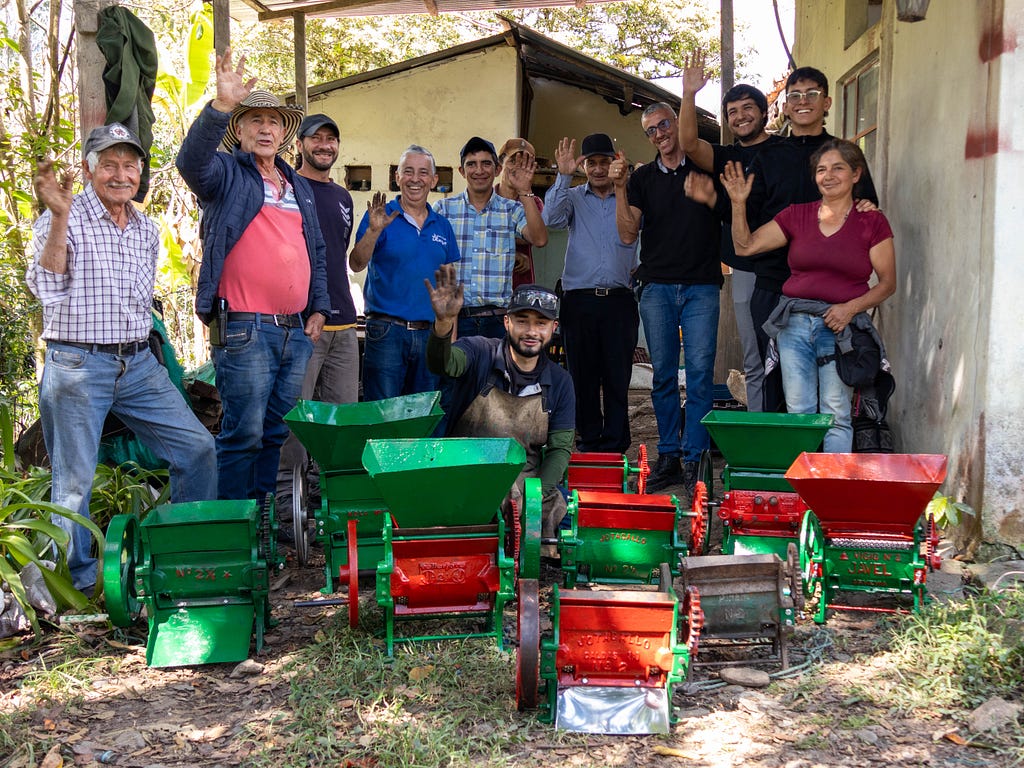The traditional coffee processing method, carried out after harvest by the expert hands of our producers, consists of four fundamental steps: depulping, fermentation, washing, and drying. Each stage is crucial to preserving the quality of the bean from its collection to its final preparation. Today, we focus on the first step: depulping.
The traditional coffee processing method, carried out after harvest by the expert hands of our producers, consists of four fundamental steps: depulping, fermentation, washing, and drying. Each stage is crucial to preserving the quality of the bean from its collection to its final preparation. Today, we focus on the first step: depulping.
What is Depulping and How is it Done?
Depulping is the process of removing the pulp from coffee cherries. Although water was traditionally used for this step, its usage has been significantly reduced in favor of conserving this valuable resource. Instead, depulping machines or cherry removers are now more commonly used.
There are various models of depulping machines, but they all operate under the same principle: the coffee cherries pass between a smooth surface and a serrated one, where pressure separates the seeds from the pulp and expels them separately. The key to the process is keeping the machine well-calibrated and ensuring that the teeth on the drum or screen are in good condition, free of damage or deformities that could affect depulping quality. If the gap between the surfaces is too wide, some beans will pass through without being depulped; if it’s too narrow, the beans may be cut or damaged. Proper calibration and machine maintenance are essential to avoid efficiency losses, which directly impact producers’ income when selling their coffee.
At Devoción, strengthening coffee producers throughout their postharvest processing is a priority. That’s why, in December of last year, we conducted a workshop led by Industrias Dingo, with the guidance of engineer Ramón Flórez and his expert mechanic, Camilo. Ramón is a remarkable example of entrepreneurship, innovation, and service, always striving to share his knowledge with coffee producers to enhance efficiency in their post-harvest processes, especially depulping.
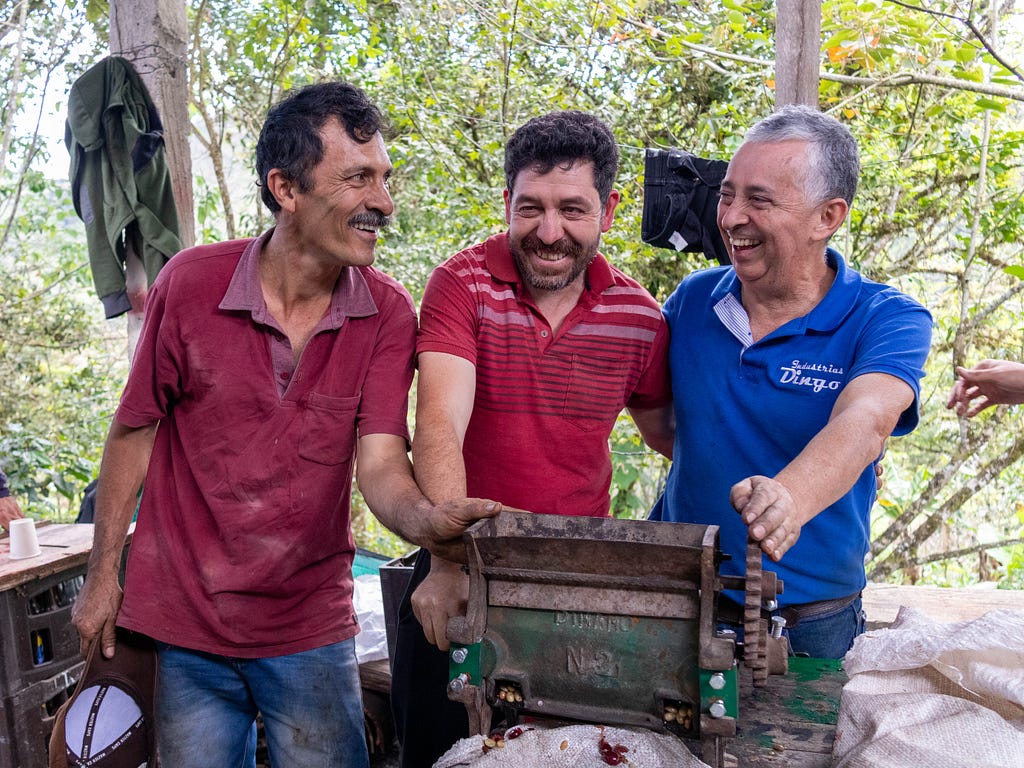
Held on December 2 and 3, the workshop brought together 14 producers, who brought nine depulping machines to work on. This initiative aimed to benefit the producers of Asofincas in the municipality of Gachetá, under the leadership of our producer and partner, Martha Obando. The workshop responded to a need identified by her as part of the second phase of our Women’s Day Project. Additionally, Devoción subsidized 70% of the necessary spare parts for the machines, including drums, gears, and other components, ensuring they functioned like new.
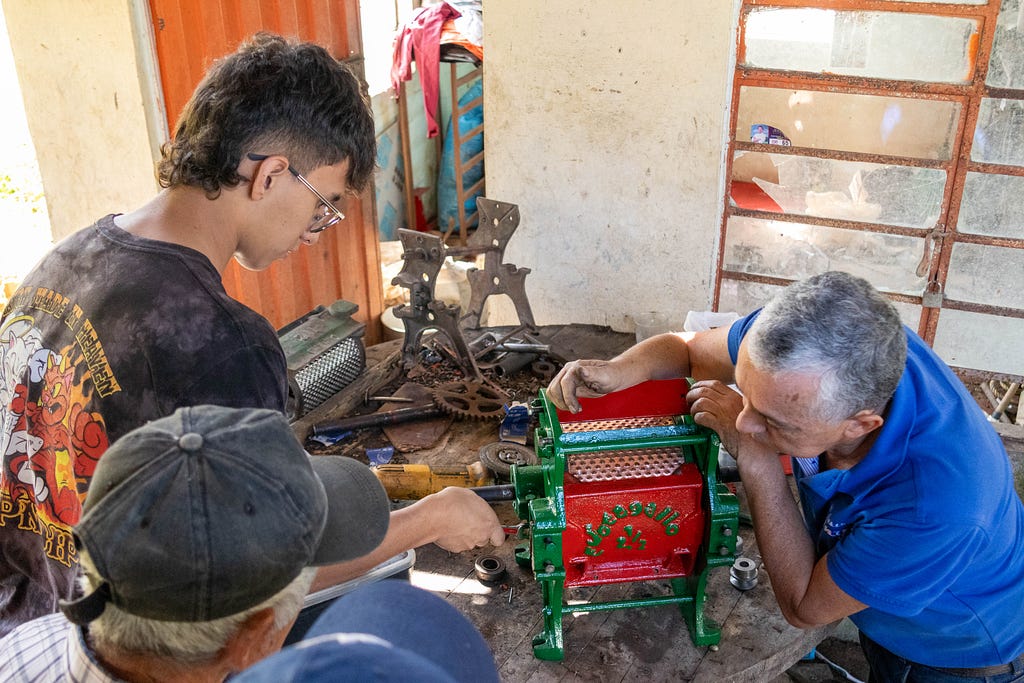
The importance of conducting the workshop in a theoretical-practical format was not only to calibrate the depulping machines but also to provide Asofincas producers with the skills and knowledge to identify and troubleshoot calibration issues on their own.
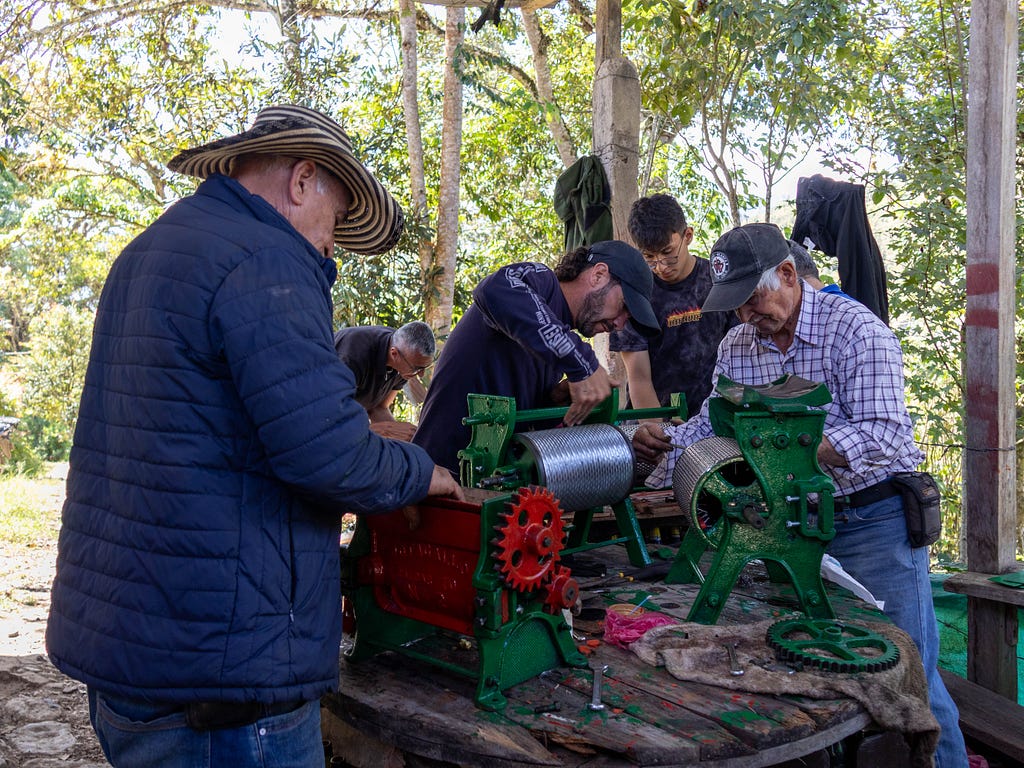
The most exciting part of this process was witnessing the producers’ surprise and joy when testing their machines with coffee cherries and realizing that they were now fully operational and perfectly calibrated. They couldn’t believe that their depulping machines were no longer cutting or damaging their beans, raising expectations for improving both their harvest efficiency and coffee quality — a key factor in achieving better financial returns.
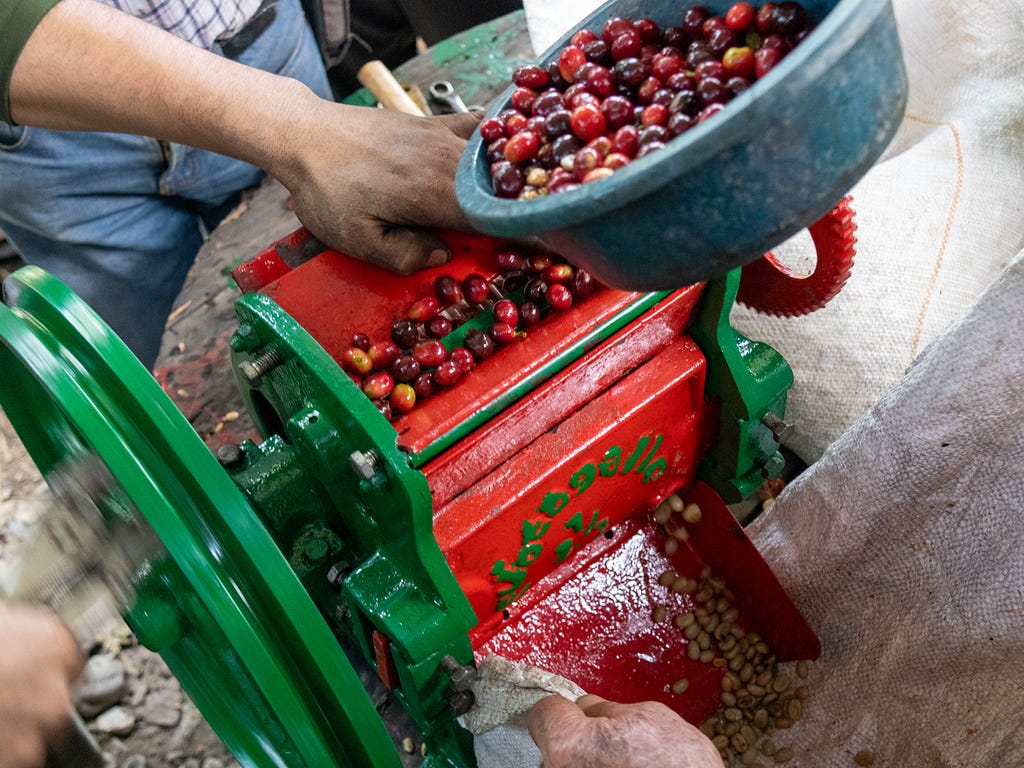
Once the next Asofincas coffee harvest is completed in the upcoming quarter, we will be able to assess the full impact of this process and its economic benefits. In 2024, the samples sent by them showed an average of 1.1% of cut or damaged beans. Thanks to this initiative, we expect that percentage to drop significantly.
Commitment to 2025
In 2025, we will continue supporting our coffee producers, helping them enhance their processes and achieve even higher quality beans. At Devoción, we are committed to Colombian rural development, providing the necessary tools for Colombian coffee to remain the best in the world — so that you can continue to enjoy its unmatched freshness, aroma, and flavor.
